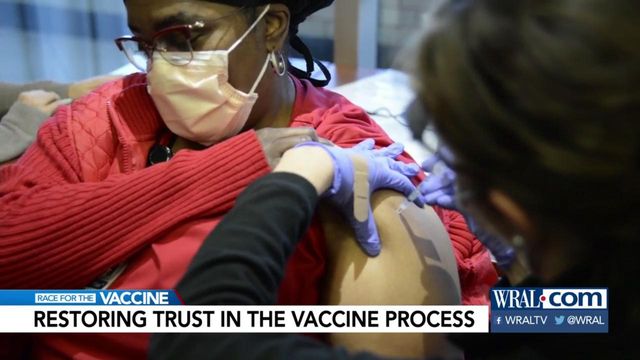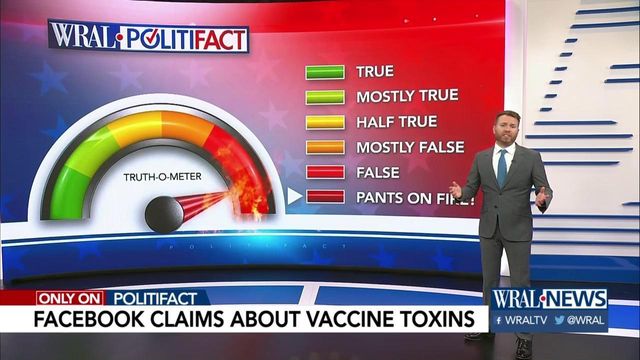Study shows apprehension in minority communities about COVID vaccine
A new study says Black Americans are resistant for two big reasons -- potential side effects and a lack of trust in the government to make sure the vaccine is safe.
Posted — UpdatedAs coronavirus vaccinations continue, there is apprehension in minority communities about getting the shot.
A new study says Black Americans are resistant for two big reasons — potential side effects and a lack of trust in the government to make sure the vaccine is safe.
The 67-year-old nurse at Duke’s South Clinic said the only side effect was a little soreness in her arm.
“On a 1-10 scale, it was about a three. The second day, nothing since that time. No sniffles, no headaches, no body aches, no congestion. I have been absolutely fine," she described.
While Williams said she wasn't afraid, she understands why people in the Black community are more hesitant to roll up their sleeves.
“Based on history, in the past, we were targeted. We were targeted and we haven’t forgotten that. However, things have changed since that time," she explained.
A study released last week by the Kaiser Family Foundation showed Black adults are among the most hesitant. But willingness is increasing from 50 percent in September to 62 percent in December.
“If I can get it first and document my progress and kind of convince other people then that’s the most important thing to me," said Deborah Washington, a nurse in the COVID ICU at Wake Med Hospital.
While the vaccines were developed in record time, Wake Forest Baptist Health chief of infectious diseases Dr. John Sanders said a 95 percent efficacy rate should give people confidence.
Williams said she's hopeful the vaccine will bring the pandemic to an end - and she’s hoping her experience will inspire others to get vaccinated, too.
“I am a nurse. Nurses teach. Nurses lead by example. I am a living, breathing, walking example," she added.
Williams will get her second dose of the Pfizer vaccine in early January.
Related Topics
• Credits
Copyright 2024 by Capitol Broadcasting Company. All rights reserved. This material may not be published, broadcast, rewritten or redistributed.






